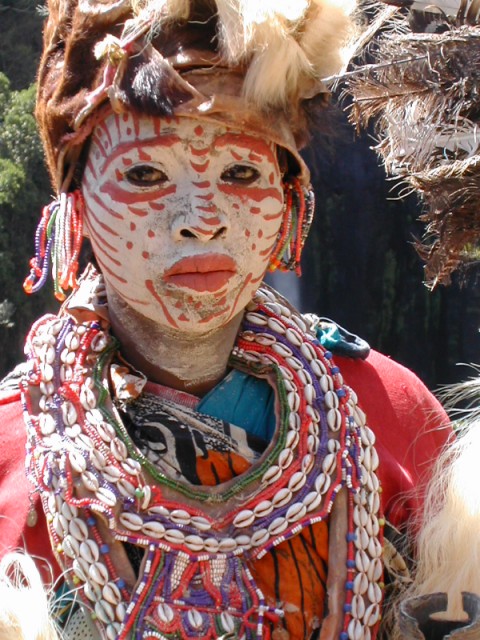Gikuyu
Numbering well over 4 million people, the Gikuyu (also known as the Kikuyu) are the largest ethnic group in KENYA. They live in the high, fertile region between Mount Kenya and the capital city of NAIROBI. Their language, also called Gikuyu, is one of the Bantu languages. Traditionally, Gikuyu societies were based on farming, particularly millet and root crops, and raising goats and other livestock. During the 1900s, white settlers began pushing Gikuyu out of their homeland. Many of the Gikuyu moved to Nairobi, where they worked mainly as unskilled laborers. Others migrated as farm workers into territory claimed by white colonists.
In the 1950s some of the landless Gikuyu organized a group known as the MAU MAU. Hoping to speed progress toward Kenyan independence, they led a terrorist uprising against the colonial administration. Many years of fighting followed and thousands of Gikuyu lost their lives. Finally, the British subdued the Mau Mau. When Kenya gained independence in 1963, the nation's first president was a Gikuyu leader named Jomo KENYATTA. During his rule, the Gikuyu people gained numerous rights and held many important posts in the Kenyan government. However, the next president, Daniel arap MOI, was a member of an opposing party and a different ethnic group. Moi withdrew most of the privileges the Gikuyu had received and removed many Gikuyu from positions of power. (See also Ethnic Groups and Identity.)
